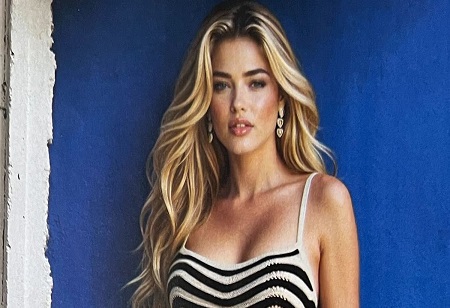Vogue's AI-Generated Model Sparks Debate on Beauty Standards
Vogue’s August 2025 issue featured something new: an AI-generated model in a two-page Guess ad, kicking off a big conversation about beauty standards and inclusivity in fashion.
The model—a flawless blonde with blue eyes—was created by a London-based AI firm, Seraphinne Vallora.
It rocked Guess’s summer collection with stunningly realistic details, but small print noted it wasn’t a real person. Vogue made it clear this was an ad, not an editorial choice, but that didn’t stop the controversy.
People are upset, saying this move sets back years of progress toward diversity in fashion. The model’s perfect, Barbie-like look has reignited worries about unrealistic ideals, like the overly airbrushed, Euro-centric images of the past. Vanessa Longley from the eating disorder charity Beat told the BBC this ad is “concerning,” as such images could harm body image and increase eating disorder risks.
- Vogue’s AI Model Ad Sparks Backlash Over Beauty Standards and Diversity
- Guess Faces Criticism for Featuring AI-Generated Model in Vogue Magazine
- Fashion Industry Debates Ethics of AI Models After Vogue August 2025 Issue
The AI firm’s founders, Valentina Gonzalez and Andreea Petrescu, stand by their work, saying the model looks real and doesn’t push narrow beauty ideals. But they admitted to the BBC that their diverse AI models—like those with different skin tones—get less attention on Instagram, so they lean toward what sells. Critics like plus-size model Felicity Hayward aren’t having it, calling the ad “lazy and cheap.” She worries it could take jobs from real models, especially from plus-size or minority groups who fought hard for visibility through milestones like Valentina Sampaio’s Victoria’s Secret runway or Halima Aden’s hijab-wearing campaigns.
Also Read: PUMA and HYROX Spark a Fitness Movement in India
Another issue is that the ad’s AI label was easy to miss, and there’s no UK law requiring clear disclosure. As AI becomes more common in fashion, people are calling for rules to ensure it doesn’t undo the industry’s diversity gains. This debate shows the tricky balance between tech innovation and keeping fashion inclusive.
🍪 Do you like Cookies?
We use cookies to ensure you get the best experience on our website. Read more...






.jpg)